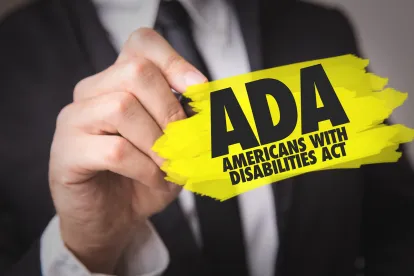This certainly sounds futuristic. (Pun intended.) Still, in a case just decided by the Eleventh Circuit Court of Appeals, EEOC v. STME, LLC, the EEOC espoused precisely this position.
The EEOC sued STME for disability discrimination under the Americans with Disabilities Act on behalf of Kimberly Lowe, a former STME massage therapist. Lowe was not disabled. However, STME terminated Lowe in 2014 because she traveled to Ghana against her employer’s wishes. The company’s owner was concerned about reports of an Ebola epidemic then raging in several neighboring countries and feared Lowe might contract Ebola while in Ghana. As it turned out, Ebola never reached Ghana, and Lowe returned from her trip Ebola-free.
After Lowe filed a charge of discrimination, the EEOC found cause and sued. The complaint alleged that STME had terminated Lowe unlawfully by regarding her as disabled based on its fears and beliefs about Ebola. The EEOC also claimed that the termination was unlawful discrimination based on Lowe’s association with people in Ghana who STME believed might be disabled by Ebola. The trial court was unpersuaded and dismissed both claims. The court of appeals agreed.
Under the ADA, for Lowe to be deemed “regarded as” disabled, the EEOC was required to show that she suffered an adverse action “because of an actual or perceived physical or mental impairment….” Lowe was healthy at the time of her termination, and STME’s owner did not perceive her to be impaired at that time. He only perceived her as having the potential for becoming infected in the future if she traveled to Ghana. The court held that the actual or perceived impairment must exist at the time of the adverse action. A mere belief that someone might contract an impairment in the future does not satisfy the ADA.
The court also rejected the EEOC’s argument that STME discriminated against Lowe based on a feared association with Ebola carriers in Ghana. The ADA requires a showing that an employer knew of a particular association with a specific disabled person. Yet, the EEOC never identified any such person and only referred vaguely to Lowe’s potential association with unknown individuals. This was too speculative to support a claim.
To be sure, the Eleventh Circuit’s ruling is good news for employers. But keep in mind that in the eyes of the EEOC, acting on the mere possibility of a future impairment constitutes disability discrimination. This may not be the last case we see on this subject.




 />i
/>i

